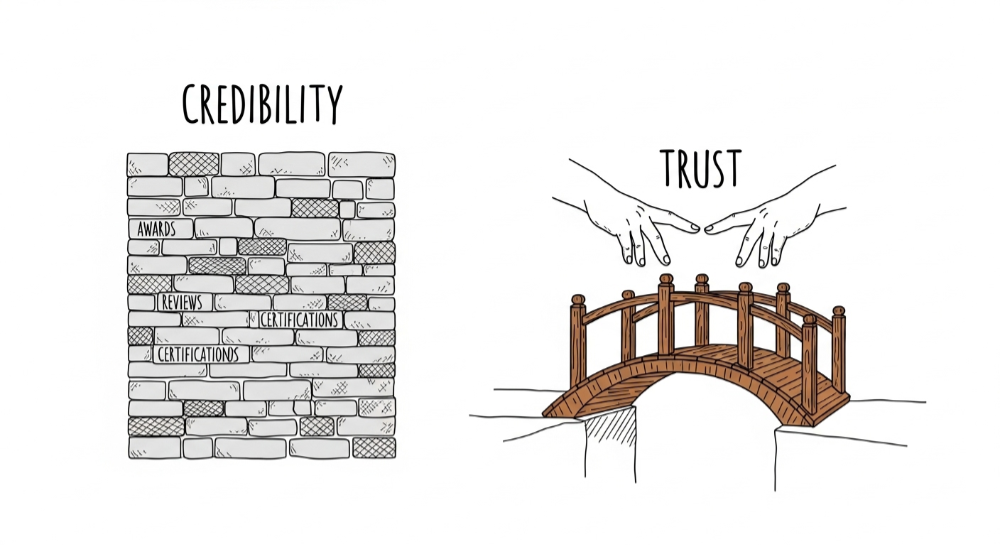
Reviews don't build loyalty

I had a client with 847 five-star reviews.
Zero repeat customers.
She kept adding more testimonials. More case studies. More proof of competence. The reviews worked, new customers kept buying.
But nobody came back.
We spent an hour digging into why. Turned out she had massive credibility and zero trust.
And she didn't know there was a difference.
Credibility means "I believe you can do this." Trust means "I believe you'll do this for me."

Credibility is about competence. Trust is about motive.
You can have perfect credibility and zero trust. That's why people buy once and disappear.
This distinction between competence and motive is the easiest way for brand builders to unlock repeat customers without more social proof.
Last email I told you about the ladder. Purchase, comeback, referral.
Three rungs.
Most of you are stuck at rung one because you're solving for the wrong variable. You're piling on credibility when the problem is trust.
Let me show you where this breaks:
#1 Social proof builds credibility, not trust.
Five-star reviews tell me you're good at what you do. They don't tell me you'll prioritize my outcome over your revenue. That's why review-loaded sales pages convert but don't create loyalty.
People believe you're competent. They don't believe you care.
#2 Thought leadership builds audience, not allegiance.
You can have 100K followers and a 2% repeat customer rate. Your content proves you know things. It doesn't prove you'll act in someone's interest when it costs you something.
Credibility gets attention. Trust gets commitment.
#3 Credentials prove skill, not intention.
Your certifications, your resume, your portfolio, all credibility. None of it answers the question your customer is actually asking: "Will you do right by me even when it's inconvenient?"
Here's the shift that changes everything:
Stop optimizing for proof of competence. Start designing for proof of motive.
My client with 847 reviews?
We didn't add more testimonials. We added a policy: if a customer wasn't happy in the first 30 days, she'd personally help them find a better solution, even if it was a competitor.
She refunded three people in the first month and recommended other providers.
Two of those three came back six months later. One referred four people.
That's not credibility.
That's trust.
Trust happens when you prove your incentives are aligned with theirs. When your win requires their win. When you do the thing that costs you something.
You can't testimonial your way to that. You have to demonstrate it.
So here's what I want you to do today: Look at your last marketing push. Count how many times you proved competence versus how many times you proved motive.
If it's all case studies and credibility, you're optimizing for the wrong rung.
You don't need more social proof. You need to show you'll act against your own interest when it matters.
Reply and tell me: what's one thing you could do this week that proves motive, not competence?
--- Shashank
11, PNR Nagar
Dindigul, Tamil Nadu 624001, India
No comments yet. Be the first to comment!